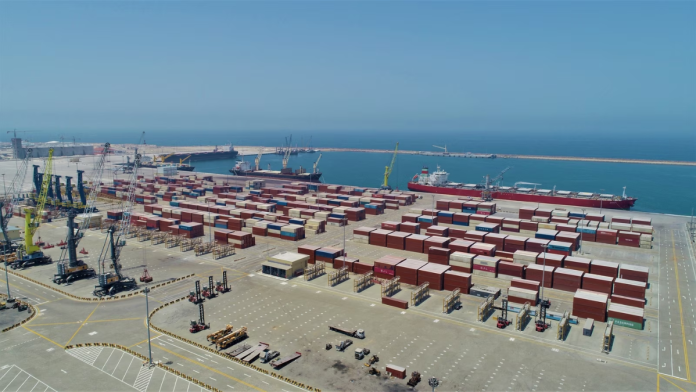US President Donald Trump recently withdrew the sanctions waiver for India’s involvement in Iran’s Chabahar Port, a critical trade and strategic project. India has invested billions of dollars into Chabahar, aiming to create a direct route to Afghanistan and Central Asia, bypassing Pakistan. This route is vital for India’s trade, regional connectivity, and geopolitical strategy.
The removal of the sanctions waiver makes it harder for India to continue operations smoothly. Projects that were moving forward may face delays, higher costs, and legal uncertainties. Many Indian officials and businesses involved in Chabahar have expressed concern that the United States move undermines India’s long-term strategic planning.
The port is not just about trade; it has wider geopolitical significance. Chabahar provides India with a foothold in a region where China has been increasing its influence through the Belt and Road Initiative (BRI). By targeting India’s involvement, the US sanctions could unintentionally disrupt regional stability in a way that favors China.
U.S. sanctions blow puts India’s $120 million Chabahar Port project in jeopardy
China Could Gain an Upper Hand
Analysts warn that the US move could indirectly strengthen China’s position in the region. Chabahar is often seen as India’s counter to Pakistan’s Gwadar Port, which is developed and supported by China as part of its BRI. If India is forced to reduce its presence or investment in Chabahar, China could gain greater control over trade routes, ports, and infrastructure in South and Central Asia.
China’s Gwadar Port, linked with the China-Pakistan Economic Corridor (CPEC), already gives Beijing significant influence over Pakistan and nearby regions. A weakened Indian role at Chabahar could tip the balance in China’s favor, allowing it to dominate trade routes and strengthen political ties in Central Asia. Experts say this could shift regional power dynamics, giving China advantages that were previously contested by India’s strategic investments.
China lures Indian techies with new K visa as U.S. slams H-1B with $100,000 price tag
This shift may also have broader implications for global trade. Chabahar provides an alternative route that bypasses Chinese-controlled networks. Limiting India’s role there could increase dependency on Chinese-led routes, giving Beijing leverage in trade, infrastructure, and regional diplomacy.
Concerns in India and International Media
The sanctions have caused significant concern in India. Analysts note that these decisions contradict United States claims of strong partnership under Prime Minister Narendra Modi. Many believe that while the US may be aiming to apply pressure on Iran, the unintended effect is weakening a key Indian project while benefiting China.
Indian media have highlighted that Chabahar is not only a trade route but also a strategic tool to counterbalance Chinese influence. Editorials warn that reducing India’s footprint at the port could allow China to consolidate its regional power, increasing its dominance over trade and infrastructure.
Beyond India, experts suggest that the sanctions could also reduce US leverage in the region. By making it harder for India to continue projects like Chabahar, Washington may inadvertently allow Beijing to expand influence without significant resistance. Analysts say that while the US may focus on immediate sanctions goals, the long-term geopolitical consequences could strengthen China’s position at the expense of both India and US interests.
The move has raised questions about the US’s approach to regional partnerships. Critics argue that a strong partnership with India should include support for strategic projects like Chabahar, which align with US interests in countering Chinese expansion. By withdrawing the waiver, the United States risks alienating a key partner while allowing China to advance its regional ambitions.


